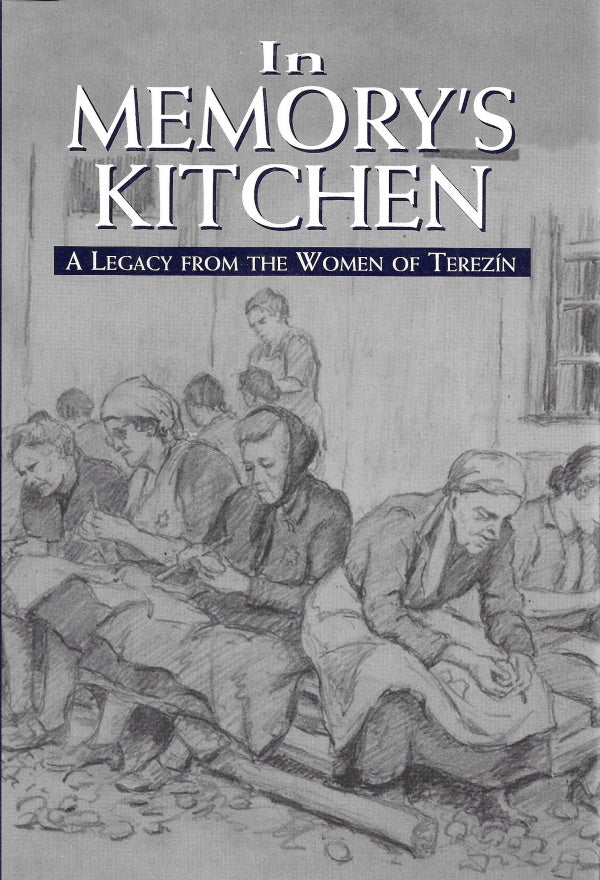OP: In Memory's Kitchen
Shipping calculated at checkout
Jason Aronson Inc., 1996. Hardcover. Fine in Fine jacket. Later printing.
Terezín, or Theresienstadt, located in German-occupied Czechoslovakia, functioned as a ghetto, a concentration camp, and a propagandized example of German decency to Jews during WWII. The truth, however, was that the site served as a stopover before deportation to the death camps at Birkenau. Starvation and disease killed nearly a quarter of the inhabitants.
The story of 70-year-old prisoner Mina Pächter’s hand-sewn and -written cookbook describes a 25 year journey from Terezín, where she died in 1944, to Palestine and, finally, to her daughter’s hands in Manhattan.
The manuscript compiled recipes of the imprisoned who occupied much of their time remembering those foods they once cooked and loved. Their memories provided hope and, thus, resistance. Among them are cherry-plum dumplings, onion kuchen, smoked goose breast, Bavarian bread, goulash with noodles, asparagus dressed with mayonnaise, and rye schnaps.
Alerted to the manuscript by the intrepid book collector Dalia Carmel Goldstein, journalist Cara De Silva recognized the significance of the manuscript and its story. She had it translated, edited it, and wrote the moving introduction for In Memory’s Kitchen, published in 1996, preserving the text as it was originally written. It made The New York Times’ most noteworthy book list that year.
In Memory’s Kitchen must be understood as a historical document before it is treated as a cookbook, as the remembrances come from people enduring the most horrific and desperate of conditions:
Whether because of illness or disorientation, an unsettling interruption, or the discovery that a contributor’s name was on a transport list, a number of the recipes are muddled or incomplete. In some an ingredient is left out (the bean torte, for instance, usually requires an egg; the cream strudel has no dough); in others a process is omitted (dumplings are made and sauced without ever being cooked). Steps are inverted, and punctuation, too, is often nonexistent or perplexing.
We were disheartened to hear of De Silva’s sudden passing in December 2022 and are encouraged to bring her contribution to food scholarship back to the fore. We offer here an unused later printing in Fine condition, including the dust jacket.

